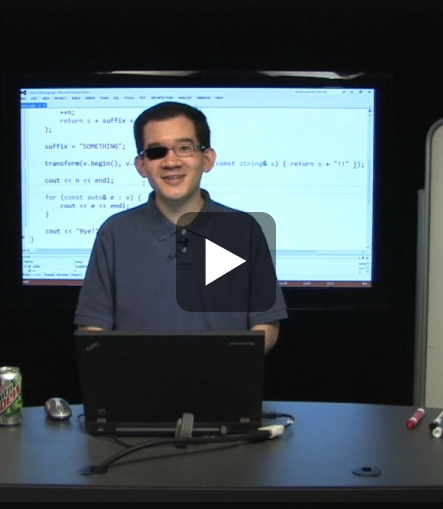When are implicit move constructors not good enough? -- StackOverflow
From SO:
When are implicit move constructors not good enough?
Should I treat it like destructors and copy constructors, where it's generally only necessary if I manage my own memory?
Is the implicit move constructor good enough in this (very contrived) scenario: ...


 The two latest C++ lectures by Stephan T. Lavavej, the eponymous STL, are now available:
The two latest C++ lectures by Stephan T. Lavavej, the eponymous STL, are now available: The keynote addresses for
The keynote addresses for 